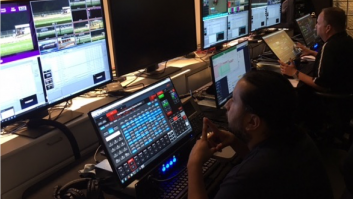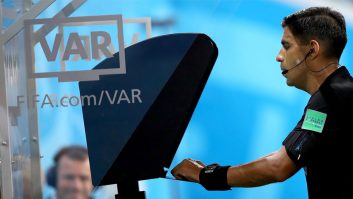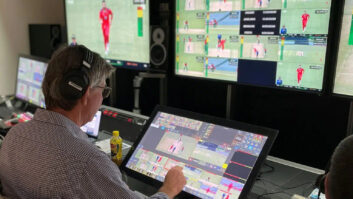The European Broadcasting Union is joining forces with a number of its members, technology vendors, and Eurovision Services on a project to test live remote production in the cloud.
The goal of the proof of concept is to push the boundaries and provide learnings to EBU members about what is currently possible in the cloud, and what challenges the broadcast industry is likely to face. It will take place during a biathlon event with Finnish broadcaster YLE and Italy’s national broadcaster RAI producing the event fully in the cloud and just one engineer on site.
The biathlon event will be the first of a two-part proof of concept, with the first part ensuring the basic level of connectivity works. The second part will elaborate more on the editorial approach, as the EBU’s Ievgen Kostiukevych tells TVBEurope: “With the second phase, we’ll be looking at extra enrichment of the content, what sort of quality we can achieve, what sort of additional content we can produce, can we implement some innovative camera technologies for example.”
The PoC will not make it to air as the EBU and its collaborators do not want to jeopardise the main event broadcast. “We expect that this will be the way to produce live sports in the future, but at the moment we are taking a cautious approach,” explains Kostiukevych. “It’s also the reason we’re testing in two phases, if something happens during phase one we can quickly change things for phase two.
“We’re aiming for the second phase to take place within six weeks of the first. Ideally we would like to continue working with the biathlon events and see how we can extend the editorial approach. But it depends on the availability of the events, especially with the lockdowns going on across Europe at the moment.”
What impact does Kostiukevych think the PoC will have on cloud production going forward? “Cloud is inevitable for everything and for everyone. It’s a matter of time,” he states. “Cloud is here to stay and companies like Google, Azure and AWS are not going anywhere anytime soon. So, one way or another every single broadcaster will see themselves operating in the cloud.”
While the first part of the PoC is taking place this week, and results won’t be available for a while, it may come up as a topic of discussion during the EBU’s Production Technology Seminar, an annual conference being held online 26-28th January this year. It will include a cloud super session with AWS, Azure, Google and Nvidia all taking part. “It’ll give us the opportunity to ask about the state of the industry and what sort of unified approach we can take,” explains Kostiukevych. “Some of the biggest questions we hear from our members are around a multi-cloud approach, so what happens if they invest in one cloud vendor and this vendor makes an unexpected change? How can they be agile in their business models to lift and shift and deploy immediately somewhere else?
Another key session during the PTS will be on standards for cloud production, hosted by SMPTE’s Bruce Devlin, a subject that Kostiukevych says is important to EBU members: “The one word that has come out of our discussions is standards. What can and should be standardised? What sort of standardised approach can we take? Can we speed up the creation of a unified media platform or unified media layer that can serve us for broadcasting applications?
“Broadcasting, and especially sports broadcast, is different from a Netflix-type VoD use-case, it’s live and we’re talking about strict SLAs, very tight latencies, very accurate synchronisation, and that still needs to be answered by a lot of cloud based solutions. So we can ask Bruce Devlin for his view on the standardisation of cloud solutions for live production.”
The EBU’s Production Technology Seminar is open to anyone, and free to EBU members. More details are available here.






